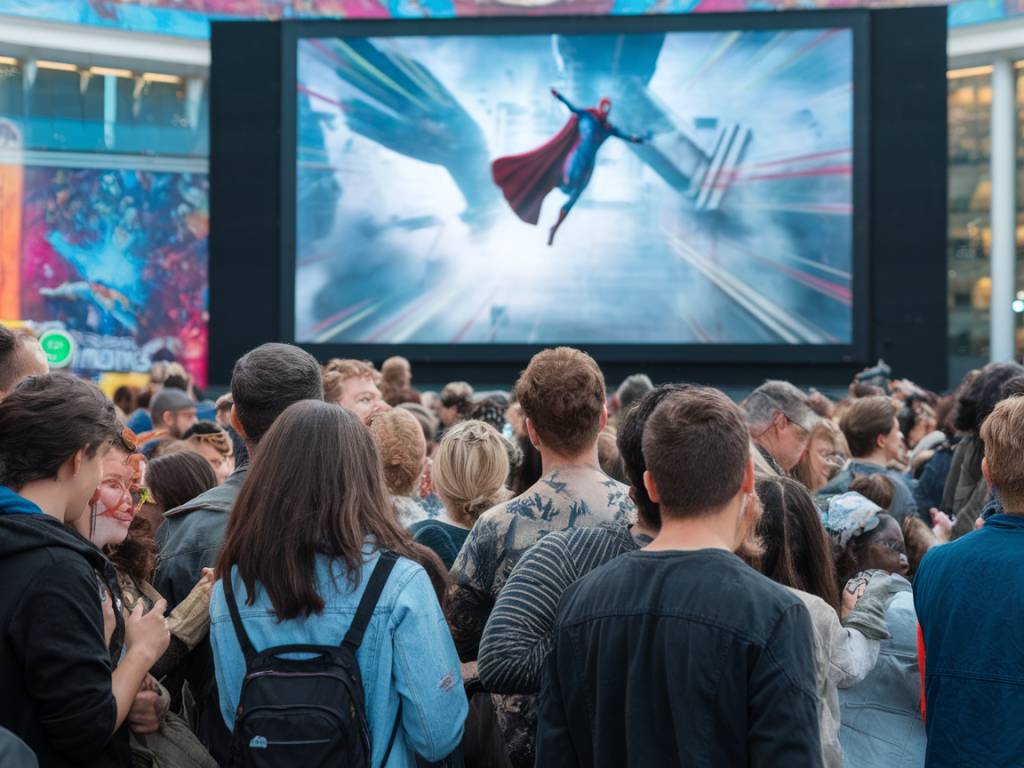The influence of pop culture on global society is a multifaceted subject that has captivated sociologists, marketers, and cultural critics for decades. Pop culture, or popular culture, encompasses the various entertainment and lifestyle elements that dominate the mainstream in any given society. Whether it be music, fashion, movies, or digital media, the impact of pop culture is far-reaching and complex. Understanding its influence is crucial for anyone aiming to fully grasp modern societal dynamics.
The Reach of Pop Culture
Pop culture has an extensive reach, transcending borders and influencing individuals irrespective of their geographical location. This broad influence can be attributed to several factors, including the globalization of media and the advent of digital technology.
- Global Media: Hollywood, Bollywood, and other major media hubs consistently produce content that is consumed worldwide.
- Digital Technology: Platforms like YouTube, Netflix, Spotify, and Instagram have made it easier for content to be disseminated globally.
- Social Media: Social networks have become vehicles for the rapid spread of pop culture trends.
Due to these vectors, the norms, values, and fashions dictated by pop culture can affect societies far removed from their point of origin. This global dissemination has only intensified in the age of the internet and social media.
The Economic Impact
Pop culture is not just a social phenomenon; it also has significant economic ramifications. Major economic sectors, including entertainment, fashion, and technology, are deeply intertwined with pop culture.
For instance:
- Merchandising: Branded merchandise related to popular movies, TV shows, and music generates billions of dollars annually.
- Tourism: Fans often travel to locations associated with their favorite movies, TV series, or celebrities, fueling the tourism industry.
- Advertising: Brands often use pop culture icons and references in their marketing campaigns to connect with younger audiences.
The capacity for pop culture to drive consumer behavior and economic trends makes it a critical area of focus for businesses and policymakers alike.
The Social and Psychological Impact
Pop culture not only shapes our taste in music and fashion but also affects our social interactions and psychological well-being. The stories we consume and the icons we idolize can have a substantial effect on individual and collective identities.
Socially, pop culture often brings people together. Fandoms and communities form around shared interests in TV shows, movies, or music genres, creating a sense of belonging and connectedness. Psychologically, however, the influence can be double-edged.
- Positive Influence: Representation in media can have a positive impact on self-esteem and identity formation, particularly among marginalized groups.
- Negative Influence: Unrealistic portrayals in media can contribute to stereotypes and impact mental health negatively.
Pop Culture and Political Climate
Pop culture has a significant impact on the political climate, often serving as a catalyst for social change or as a mirror reflecting societal attitudes. Celebrities and media figures frequently use their platforms to advocate for social issues, thereby influencing public opinion and even policy.
- Advocacy: High-profile endorsements or condemnations can sway public opinion and mobilize political action.
- Representation: Media can introduce and normalize diverse characters and narratives, influencing societal perspectives on various issues.
Numerous social movements have leveraged pop culture to amplify their messages. For example, music and film have been instrumental in promoting civil rights, gender equality, and environmentalism over the years.
The Role of Technology
The role of technology in the dissemination and consumption of pop culture cannot be overstated. From the advent of television to the rise of social media, technological advancements have continually reshaped how we engage with pop culture.
- Television and Film: Streaming services like Netflix and Disney+ have revolutionized how we watch content, making it more accessible and personalized.
- Music: Platforms like Spotify and Apple Music have transformed how we discover and listen to music.
- Social Media: Apps like Twitter, Instagram, and TikTok have democratized content creation and distribution, allowing anyone to contribute to pop culture.
Artificial Intelligence and Virtual Reality are set to further revolutionize our interaction with pop culture, from immersive experiences to personalized recommendations.
Educational Perspectives
Pop culture provides a valuable lens through which educational themes can be explored. Educators and academics are increasingly recognizing its potential as a teaching tool.
- Literary Analysis: Popular movies and TV shows are used to discuss literary elements, narrative structures, and character development.
- Social Sciences: Pop culture phenomena are analyzed to understand societal trends, behaviors, and cultural shifts.
- Historical Context: Music, film, and media serve as cultural artifacts that can help students understand different historical periods.
In this way, integrating pop culture into education can make learning more relevant and engaging for students, fostering a deeper connection to the material.
Pop Culture’s Influence on Language
Pop culture has a notable impact on language, shaping the way we communicate in everyday situations. Slang, catchphrases, and even entirely new words often emerge from popular films, TV shows, and music.
- Slang: Words and phrases popularized by media can quickly become part of everyday speech.
- Catchphrases: Iconic lines from movies and TV shows can become ubiquitous in popular discourse.
- Neologisms: New terms created within fandoms or through viral trends can enter the mainstream lexicon.
This evolution of language not only reflects social attitudes but also enriches linguistic diversity.
Conclusion
The overarching influence of pop culture on global society today is undeniable. Whether through economic trends, social norms, or even language, its impact is pervasive and multifaceted. By understanding these influences, we gain a deeper appreciation for the forces that shape our world and our identities.
